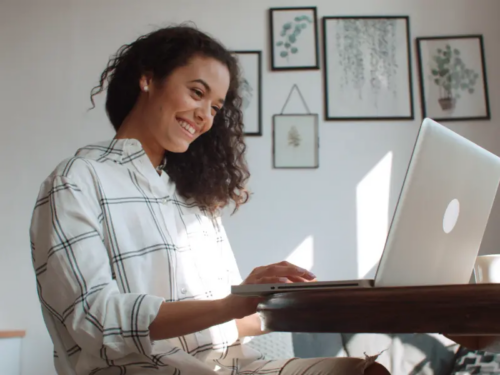
Table of Contents
IOP for Anxiety: How Intensive Outpatient Programs Treat Anxiety Disorders

Written By: Ashley Laderer

Clinically Reviewed By: Dr. Don Gasparini
June 24, 2023
6 min.
Some people with anxiety may struggle to see results from traditional weekly outpatient therapy. That’s where IOPs come into play. Read on to learn more.
Learn more about our Clinical Review Process
Table of Contents
From constant feelings of worry and fear to physical sensations of shortness of breath and a racing heart, the symptoms of anxiety disorders can turn someone’s world upside down. For many, anxiety gets in the way of day-to-day functioning and enjoying life to the fullest.
Anxiety disorders are very common, affecting over 300 million people worldwide. While traditional weekly talk therapy can help some anxiety sufferers, other people need an extra boost to overcome these challenges. That’s where intensive outpatient programs (IOPs) for anxiety come into play. IOP is ideal for individuals who require more support than traditional weekly outpatient therapy but do not necessarily need the round-the-clock care provided by inpatient hospitalization or residential treatment programs.
Whether you or your loved one is seeking additional mental health support to manage anxiety, here’s what you need to know about IOP for anxiety disorders and how Charlie Health’s IOP can help teens and young adults with anxiety.

Personalized anxiety treatment from home
Learn today if virtual IOP is the right fit to help you manage your anxiety
How can an IOP help people with anxiety?
An IOP for anxiety can be a game-changer for those requiring additional support to overcome their anxiety disorder. Charlie Health’s IOP can help provide treatment for a range of mental health conditions, including the following disorders involving anxiety:
- Generalized anxiety disorder (GAD)
- Obsessive-compulsive disorder (OCD)
- Panic disorder
- Phobias
- Separation anxiety disorder
- Social anxiety disorder
There are various treatment modalities that therapists use to help treat anxiety disorders. Effective evidence-based therapies offered by Charlie Health provide teens and young adults with new ways to learn to manage their anxiety and reduce overall anxiety symptoms.
Charlie Health’s IOP will use a combination of different approaches to reduce anxiety and improve mental health. Three of the top methods used to help those with anxiety at Charlie Health are:
Cognitive behavioral therapy (CBT):
When it comes to treating anxiety disorders, CBT is a go-to treatment method. It’s based on the concept that how we think, feel, and behave are interconnected.
CBT helps people to recognize negative thought patterns and behaviors –– and then change them. A main aspect of CBT for anxiety is challenging cognitive distortions, such as catastrophizing, when you’re focusing on worst-case scenarios, or polarized thinking, when you see things in an all-or-nothing way.
In addition to restructuring unhealthy thought patterns and behaviors, CBT equips people with effective coping strategies to handle anxiety, such as grounding techniques and mindfulness exercises. These techniques come in handy during periods of high stress or even during panic attacks.
CBT helps people with anxiety tackle negative core beliefs, better manage stress, navigate difficult emotions, and reduce overall anxiety symptoms.
Dialectical behavior therapy (DBT) skills:
DBT is a form of therapy that helps people understand and regulate their emotions healthily. The therapy integrates various techniques in both individual and group settings that can benefit people with anxiety. DBT consists of four key components, including:
- Mindfulness: This component helps individuals cultivate present-moment awareness and acceptance, allowing them to observe and detach from their anxious thoughts and sensations without judgment.
- Emotional regulation: DBT equips people with skills to effectively identify and regulate intense emotions. These skills minimize the impact of distressing emotions on stress and anxiety levels.
- Distress tolerance: Therapists teach distress tolerance techniques that help people healthily navigate difficult emotions or situations rather than resorting to unhealthy coping mechanisms like self-harm or using substances. These skills prove useful in times of both emotional and physical distress. Examples include muscle relaxation, paced breathing, and radical acceptance.
- Interpersonal effectiveness: This component focuses on relationships outside of therapy. Therapists teach listening skills, social skills, and assertiveness training, improving one’s ability to communicate their needs, work through conflicts, build self-respect, and ultimately, enhance relationships.
By combining these four main elements, DBT equips people with valuable skills to manage their anxiety, regulate emotions, and have healthy relationships.
Mindfulness
Mindfulness is a priceless tool that can help individuals experiencing anxiety disorders. As mentioned earlier, it may be integrated into CBT and DBT. Most people associate mindfulness with meditation. However, there are plenty of other ways to incorporate mindfulness into daily life.
People with anxiety often get easily carried away by their thoughts or uncomfortable physical sensations. Mindfulness counteracts this, teaching individuals to observe their anxiety without getting overwhelmed or entangled in the never-ending cycle of anxious thoughts. By practicing mindfulness and acknowledging that thoughts and emotions come and go, individuals can start to detach themselves from their anxiety.
Plus, a mindfulness practice can help people develop self-compassion and acceptance—a skill especially beneficial for those grappling with anxiety who tend to be hard on themselves. Individuals with anxiety can find relief as they progress through their treatment journey by cultivating a non-judgmental and kind attitude towards themselves.
On top of CBT, DBT, and mindfulness, Charlie Health’s IOP also provides the following types of therapy that may be included in a treatment plan for patients with anxiety disorders:
- Art and music therapy
- Attachment-based family therapy
- Compassion-focused therapy (CFT)
- Dance and movement therapy
- Drama therapy
- Experiential therapy
- Exposure therapy
- Family support groups
- Motivational interviewing
- Relational therapy

What anxiety treatment looks like at Charlie Health’s IOP
While traditional outpatient therapy sessions are typically held once a week, an intensive outpatient program offers higher support and structure, with multiple sessions conducted throughout the week. These sessions consist of individual therapy, group sessions, and family therapy. This combination makes for a comprehensive treatment plan for people with anxiety.
- Individual therapy: Individual therapy is a critical component of an intensive outpatient treatment program. It provides individuals with the one-on-one support they need. Individual therapy helps people work through past trauma, address current struggles, and more. Therapists can help individuals identify anxiety triggers and teach them new ways to cope with stress and negative thought patterns.
- IOP groups: Group sessions bring together people who are facing similar mental health challenges, such as anxiety. IOP groups give individuals a chance to connect with one another and help them remember that they are not alone in their recovery journey. Group members can share their experiences with anxiety in a non-judgemental, safe space and offer support and advice.
- Family therapy: Family involvement is a major predictor of an individual’s success in an intensive outpatient program, and that’s why family therapy is woven into Charlie Health’s IOP. Family therapy will help family members learn healthy communication and conflict resolution, fostering a supportive environment at home. For individuals with anxiety, family therapy is a great way for family members to receive psychoeducation on anxiety, and to learn ways to help their loved one cope.
In Charlie Health’s IOP, a typical treatment plan for anxiety involves:
- 1 hour of individual therapy every week
- 1-2 hours of family therapy every week
- 3 hours of group sessions per day, held 3 days a week
By enrolling in Charlie Health’s IOP, individuals can receive the intensive treatment necessary to address their anxiety and any other co-occurring mental health conditions while still being able to maintain their daily routines, such as attending school or work.
Additionally, since Charlie Health offers a virtual IOP, there is an added convenience factor. With the ability to receive treatment remotely, a virtual IOP eliminates the need for physical proximity and opens doors to comprehensive mental health care regardless of location or logistical constraints.
How do I know if Charlie Health’s IOP for anxiety treatment is right for me or my loved one?
To sum it all up, an IOP provides a middle ground between traditional outpatient care and inpatient treatment. It is suitable for people who are not necessarily experiencing a high-acuity mental health crisis, but require more support than individuals with low-acuity mental health concerns or mild symptoms.
Charlie Health’s IOP is typically appropriate for teens and young adults who are not actively in a mental health crisis but require more than once a week of therapeutic support. It may also be a good option for those recently discharged from a residential treatment facility or an emergency department admission who need extra support to get back on their feet. It’s also a great choice for people who aren’t seeing results or noticing anxiety symptom reduction from weekly therapy sessions.
To be sure if Charlie Health’s IOP for anxiety is the right fit for you or your loved one, contact us to learn more today.




